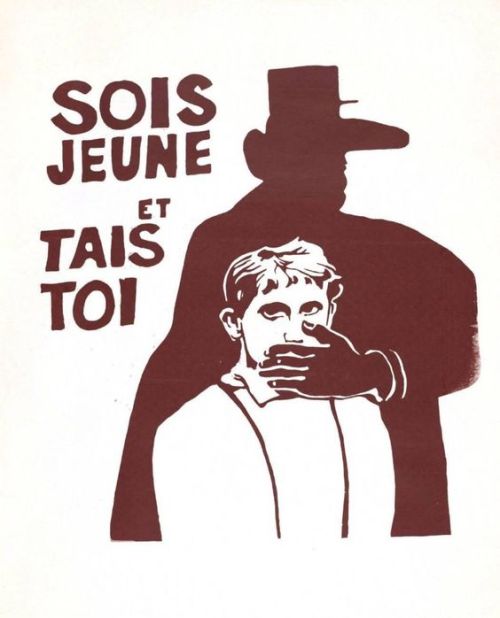Paris 1968: A Popular Movement That Almost Toppled a Government

One of the most remarkable popular uprisings of the 1960s—possibly of the modern era—started in Paris in May 1968. It would ignite and inspire the entire nation, lead to a national general strike, and almost bring down the French government of Charles de Gaulle. It also captured the imagination of the world.
The movement did die down after a few months. But it left an indelible mark on the way cultural, social and political movements can combine and be conducted. In his Foreword to When Poetry Ruled the Streets: The Events of May 1968, Douglas Kellner writes:
In the historical memory of the Left, the Events of May ’68 in France have attained mythic proportion. The student uprising, workers’ strikes and factory occupations that erupted during a brief but explosive period in 1968 instilled fear in the hearts of ruling powers everywhere. They inspired those in revolt everywhere with the faith that social upheaval is possible and that spontaneous insurgency can overcome the force of circumstances. For an all-too-brief moment, imagination seized power, the impossible was demanded, and poetry and spontaneity ruled the streets.
Of course, the revolutionary energies of the May Events were soon exhausted, order was restored, and since then the significance of May ’68 has been passionately debated. Did the uprising reveal the exhaustion and bankruptcy of the existing political system and parties, or the immaturity and undisciplined anarchy of the forces in revolt? Did the Events indicate the possibility of fundamental change, or prove that the established system can absorb all forms of opposition and contestation? Did May ’68 signal the autonomy of cultural and social revolution, or demonstrate once again that the old economic and political forces still control the system and can resist all change?…
May ’68 demonstrates as well that spontaneous action can erupt quickly and surprisingly, that it can provide alternatives to standard politics, and that a new politics is practical and necessary. The initial inability of established Left political parties and unions to support the students and workers suggests the irrelevancy of politics as usual and the need to go outside of ordinary political channels and institutions to spark significant contestation and change. The Events also suggest the primacy of social and cultural revolution, of the need to change individuals, social relations, and culture as a prelude to political and systemic transformation. The total nature of the rebellion reflects the totalizing domination of the system which must itself be transformed if significant change is to take place….
For a brief moment, the spirit of 1968 appeared to promise fundamental change in France and in other places throughout the world. To counter historical forgetting, to keep memory and hope alive let us now rethink and relive these experiences, find connections with our contemporary situation, and strive to create our own alternative modes of thought and action.
One vital legacy of May 1968 are the posters, graffiti and poetry of the movement. A gallery of posters can be found here. About these posters, Justin McGuirk of the Guardian writes:
While their fellow students engaged in pitched battles with the police and millions of workers went on general strike, students at the École des Beaux Arts in 1968 occupied the printing studios and converted them into the uprising’s very own propaganda machine. Many of the resulting posters have become icons of political design.

Be young and shut up (Charles de Gaulle silencing a protester)

We are all undesirables

We are the power




